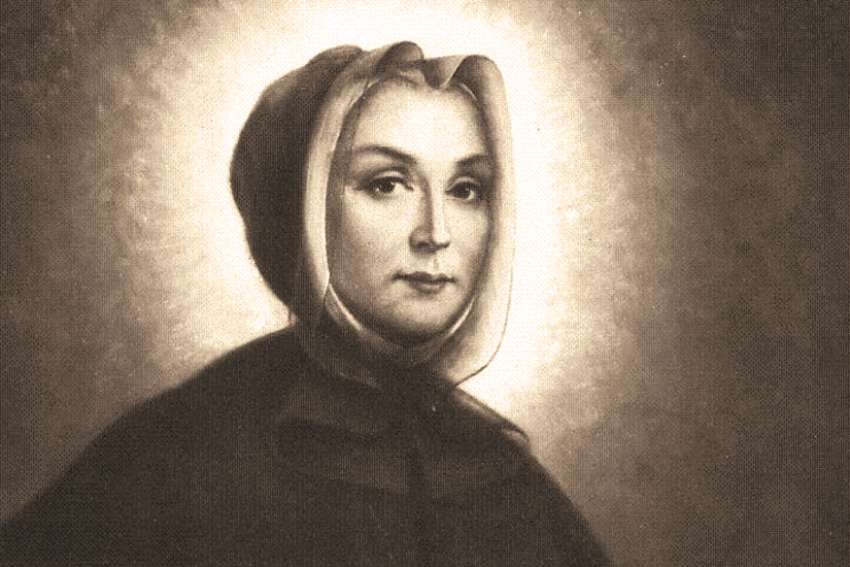The anniversary year got off to a great start with the news that Professor Jacalyn Duffin was named a member of the Order of Canada in the New Year’s honours.
The Queen’s University philosopher also holds a chair in the history of medicine. What’s the connection between Professor Duffin, an atheist, and the foundress of the Grey Nuns? Let her explain it in her own words.
“There was no mistaking the diagnostic significance of that little red stick inside a deep blue cell: The Auer rod meant the mystery patient had acute myelogenous leukemia. As slide after slide went by, her bone marrow told a story: treatment, remission, relapse, treatment, remission, remission, remission,” wrote Duffin in The New York Times in 2016. “I was reading these marrows in 1987, but the samples had been drawn in 1978 and 1979. Median survival of that lethal disease with treatment was about 18 months; however, given that she had already relapsed once, I knew that she had to be dead. Probably someone was being sued, and that was why my hematology colleagues had asked for a blind reading.”
Duffin completed the blind reading — not knowing the patient or the reason for the analysis. She wrote her report and waited for a summons to testify.
“Imagining an aggressive cross-examination in court, I emphasized in my report that I knew neither the history nor why I was reading the marrows,” Duffin wrote. “After the work was submitted, I asked the treating physician what was going on. She smiled and said that my report had been sent to the Vatican. This leukemia case was being considered as the final miracle in the dossier of Marguerite d’Youville.”
It wasn’t a malpractice suit. It was a miracle inquiry.
The Vatican’s medical board approved the miracle. It had rejected it once earlier, hence the need for Duffin’s second opinion that it had no medical or scientific explanation. D’Youville was canonized.
Duffin was fascinated, as a scientist and atheist, that the Vatican gave such enormous weight to her medical opinion. She decided to research what she could about what the new phenomenon that she had been shown — a medical “miracle.” So she decided to spend a sabbatical in Rome.
“Over hundreds of hours in the Vatican archives, I examined the files of more than 1,400 miracle investigations — at least one from every canonization between 1588 and 1999,” Duffin wrote. “(Over 90 per cent) were stories of recovery from illness or injury, detailing treatment and testimony from baffled physicians.
“If a sick person recovers through prayer and without medicine, that’s nice, but not a miracle,” Duffin explained. “She had to be sick or dying despite receiving the best of care. The Church finds no incompatibility between scientific medicine and religious faith; for believers, medicine is just one more manifestation of God’s work on Earth.”
Duffin’s research bore fruit in her 2009 book, Medical Miracles; Doctors, Saints, and Healing, 1588-1999 (Oxford University Press). It is a fascinating read. Duffin’s Order of Canada confirms her status as a decorated and esteemed scholar.
Over the years I had the opportunity to hear Duffin lecture at Queen’s. There were always those in the audience who, priding themselves on their scientific materialism and secular fundamentalism, could not believe that Duffin was a believer in miracles. That’s not quite right. Duffin did not attribute to divine intervention what she could not explain. She simply said that healings which were not medically explicable did happen. That reality did not bring her to religious faith, but she did insist that it was the reality.
Following the science sometimes requires one to go beyond science for answers. I hope that Duffin’s elevation brings more attention to her research. Her book will be of interest to Catholics, to learn more about how canonization causes are judged.
But it will be more important for the scientifically-minded, especially those who think that a powerful way of knowing is the only way of knowing. It’s not. And Duffin has the data to prove it.
(Fr. de Souza is editor-in-chief of Convivium.ca and a pastor in the Archdiocese of Kingston.)


